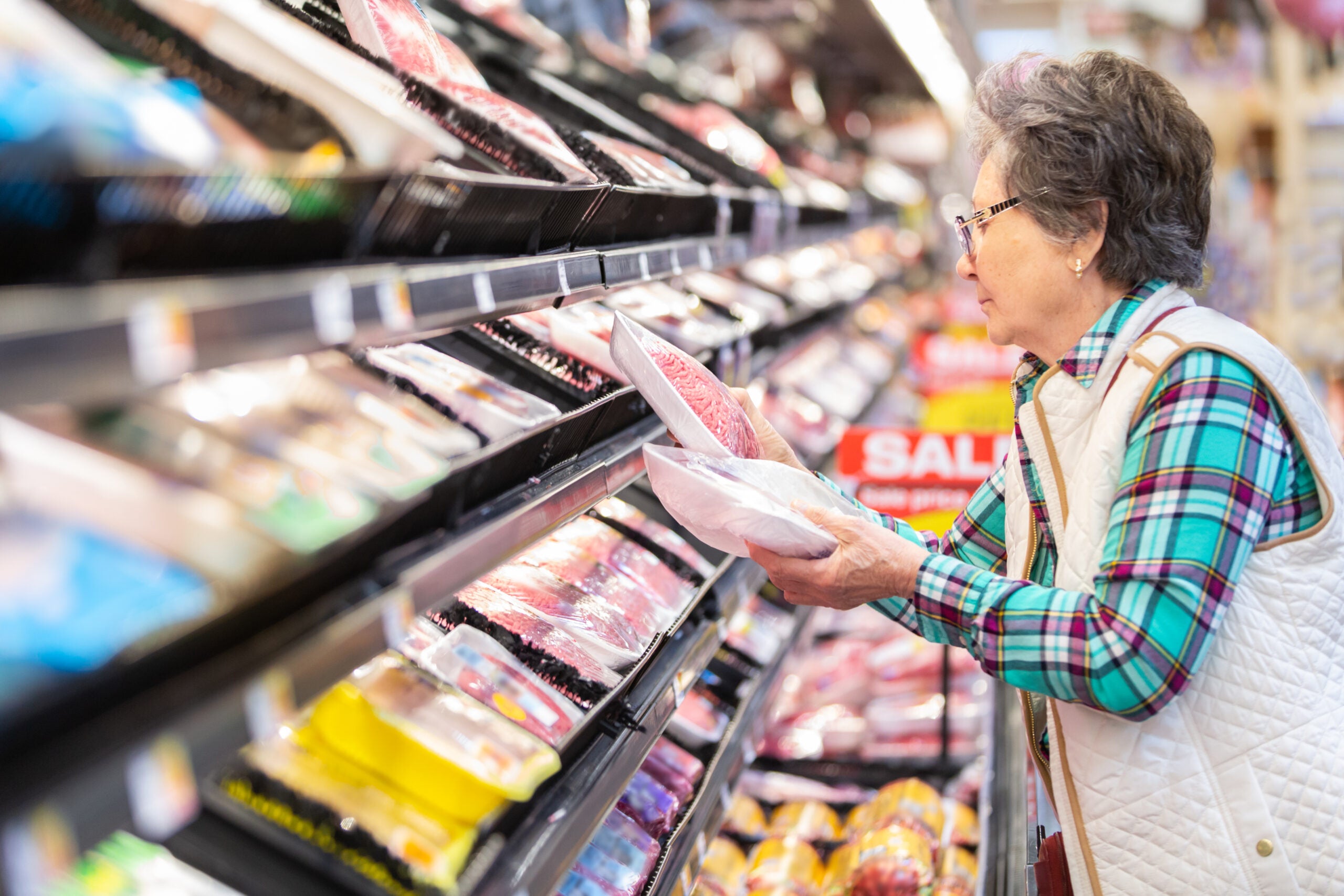Lawsuits Claim 'Humane' and 'Natural' Labels on Some Big-Brand Meat Products May Constitute Deceptive Advertising

(Photo: AMR Image / Getty Image)
Grocery shoppers are more interested than ever in buying food from companies that prioritize environmental responsibility, natural agriculture, and the welfare of animals and humans involved. Corporations have been eager to catch those customers with packaging that touts their products with labels like “natural” and “humane” – but there are limited standards for what many of those terms mean. That lack of clarity is now at the center of hundreds of lawsuits playing out in courts across the U.S. accusing the companies of misleading consumers – many of the cases brought by advocates calling for higher agriculture standards and more transparent labels.
Brands including Tyson, Sargento, and Cargill are among the defendants in current lawsuits, The New York Times reports.
In the Tyson lawsuit, at issue are claims that it raises chickens under “humane and environmentally responsible production” practices.” In a legal complaint, plaintiffs Food & Water Watch and Organic Consumers Association assert that putting those phrases constitutes “deceptive marketing and advertising.”
“Contrary to those representations, Tyson and its contractors systemically breed, hatch, raise, transport, and slaughter chickens in environmentally harmful and inhumane, disease-ridden factory-farm conditions,” the complaint reads, before detailing a list of specific allegations.
Representatives for Tyson issued a statement to the Times responding that the company “complied with all labeling regulations, and was transparent about environmental, animal welfare, and workplace safety efforts.”
But what, exactly, those labeling regulations demand is at the heart of a major conflict in the food industry, pitting advocates calling for stricter standards against large agricultural and food service interests.
Sales of certified Organic food hit a record high in 2020, topping $60 billion, according to Supermarket News. But while that USDA stamp confirms the producer followed a specific set of guidelines (which have their own controversies), many other terms companies slap on their products lack such a clear definition. Muddling matters further when it comes to animal agriculture, the USDA’s Food Safety and Inspection Service currently only has jurisdiction to inspect slaughterhouses and meat processing plants, not the farms and ranches themselves.
In September 2019, the Animal Welfare Institute released a report based on Freedom of Information Act requests for government documents relating to the approval process for packaging labels for meat and poultry. The group investigated animal products labeled with claims such as “sustainably farmed,” “humane,” and “environmentally friendly.”
“For 20 out of 25 claims requested by AWI, the USDA had no documentation that the producer underwent pre-market label approval for the use of these claims,” the report states. “In the five cases where it appeared the producer did undergo pre-market label approval, the USDA allowed producers to use claims with only minimal supporting evidence.”
States such as California have enacted more stringent laws about animal welfare and labelling at the state level, but until federal standards change, many activists see filing lawsuits and Federal Trade Commission complaints about packaging to be the most effective pressure tactic they have.
“Even if we can’t sue Tyson for abusing their chickens,” lawyer Jay Shooster, who has worked on several of the cases, told the Times, “at least we can sue them for misleading about how their chickens are treated.”
RELATED: Los Angeles Baker Jen Yee Is Making Phenomenal Croissants That Just Happen to Be Vegan
Get more of what you love from VT. Follow us on Instagram, Facebook, and Twitter, and sign up for our email newsletters.